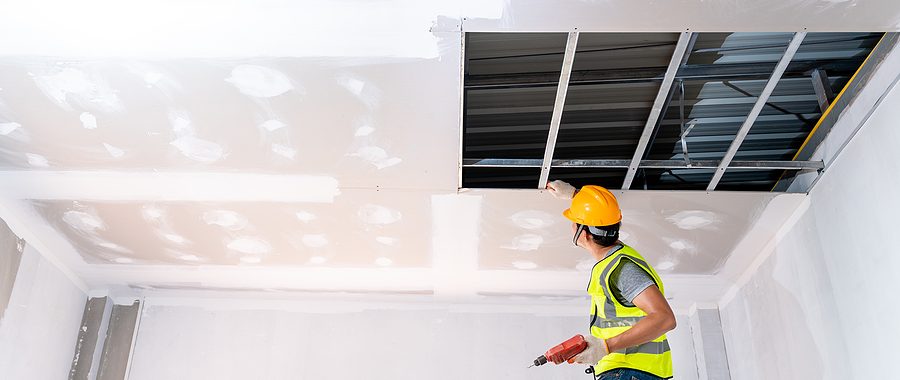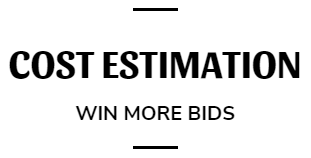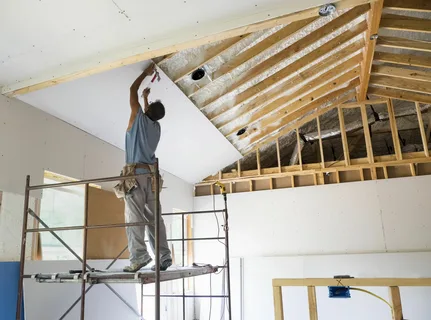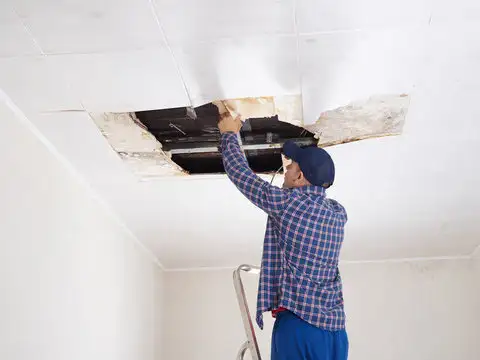Drywall costs would typically be around $2,097, with most homeowners spending between $987 on the low end and $3,209 on the high. The prices depend on the wall size and type. Labor, removal, and finishing would impact the final amounts.
Are you preparing for the drywall installation? Prices can vary on so many factors. Planning helps avoid unforeseen costs, and knowing what contributes to the pricing helps you budget.
What comprises the pricing are materials and labor. If the removal of the old drywall is necessary, that could increase costs. On top of that, various elements, such as texture and insulation, will impact the price. Painting can also exert influence on the total cost.
Cost of Drywall Installation per Square Foot
Drywall installation costs about $1.50 to $3.50 per square foot, depending on ceiling height, drywall type, and level of finish. Material costs will be from $0.50 to $0.8 per square foot. Labor costs for hanging and finishing drywall range from $1.00 to $2.70 per square foot.
Square Feet |
Average Cost (Materials Only) |
Average Cost (Installed) |
| 50 sq.ft. | $27 – $39.50 | $77 – $179 |
| 100 sq.ft. | $55 – $85 | $170 – $380 |
| 200 sq.ft. | $130 – $180 | $350 – $800 |
| 500 sq.ft. | $280 – $390 | $780 – $1,850 |
| 1,000 sq.ft. | $550 – $850 | $1,600 – $3,900 |
| 2,000 sq.ft. | $1,300 – $1,800 | $3,500 – $8,000 |
Drywall installation cost
Installing drywall usually costs about $1.50-$3.50 per square foot of wall area or $30-$70 per sheet. This includes all installation costs, i.e., labor and materials for hanging, taping, and finishing.
Item |
Cost per Square Foot |
| Install drywall walls | $1.50 – $3.50 |
| Install drywall ceiling | $1.50 – $3.80 |
| Replace existing drywall | $2.00 – $6.00 |
Drywall Installation Cost Factors

The caliber of drywall you select and the size of your walls and ceilings will most greatly influence your installation costs. Adding texture, insulation, or painting will reduce costs but enhance comfort and good looks. These extras can make the room cocktail attractive and darned cozy.
Wall Size
Dry-walling costs, depending on wall and ceiling sizes, the type of drywall selected, and some optional features like texture, insulation, and painting, have a profound influence on it. Installation generally costs $1.50-$3.50 per square foot, and a homeowner will spend an average of $8,000-$30,000 for a 2,000-square-foot house.
| Room Size (Feet) | Average Cost for Materials and Installation |
| 5 x 8 Bathroom | $300 — $1,000 |
| 12 x 12 Bedroom | $600 — $1,800 |
| 12 x 20 Bedroom | $750 — $2,600 |
| 16 x 20 Living Room | $850 — $3,100 |
| 20 x 20 Main Room | $1,000 — $3,900 |
Classification of Drywall
Variations in drywall prices generally arise from the different types of drywall, each having specialized properties suited for diverse applications. Outlined below is a narrative of the various types of drywall:
- Regular Drywall: Also known as standard drywall or whiteboard drywall, regular drywall is about 0.5 inches thick, a working and less expensive option for most residences. It can be applied to more general-purpose areas of residential spaces, areas not subjected to high humidity conditions.
- Water-Resistant Drywall: Water-resistant drywall is better known as green boards, featuring a layer of moisture-resistant material on the surface. It is suitable for locations around moderate moisture, such as kitchens and laundry rooms. It can be used in bathrooms; however, it is crucial to note that it is not fully waterproof and should not be installed in contact with water, as in the case of showers.
- Mold-Resistant Drywall: Mold-resistant drywall, or the purple board, is somewhat more moisture-resistant than green board and comes with an antimicrobial layer that helps prevent mold growth, thereby being suitable for areas with humidity such as bathrooms and basements. Thus, this drywall can be a better proposition in quick-damping environments.
- Fire-Resistant (Type X) Drywall: Type X drywall is engineered specifically to provide double fire resistance compared with standard or normal drywall. It is generally 5/8 inches thick and may be mandated in areas with fire concerns such as garages and multi-family dwellings. This type of drywall retards the spread of fire, promoting fire-safe measures for residential and commercial structures.
- Blueboard Drywall: This type of drywall is intended for heavy decorative plasters. The special coating provides additional resistance against moisture, allowing it to be used in bathrooms and other areas with humidity. Blue paper retains moisture better than its regular counterpart, but exercise caution when using it in wet conditions.
- Paperless Drywall: Paperless drywall substitutes fiberglass mesh for paper, providing excellent moisture and mold resistance. It is especially good in high-humidity applications, such as bathrooms, where mold growth is a concern. However, the fiberglass surface requires multiple layers of paint or finish to achieve a smooth look.
- Soundproof Drywall: Soundproof drywall has extra-thick panels made to insulate against noise pollution. This type is particularly important in areas needing essential sound insulation, such as bedrooms or home theaters. Although it happens to be the most expensive among all types of drywall, its noise-reducing capabilities make it one worthwhile investment for many homeowners.
- Eco-Friendly Drywall: Eco-friendly drywall consists of recycled materials, making it an excellent choice for environmentally sensitive homeowners. Depending on the supplier, various eco-friendly options are available that conform to sustainability guidelines and provide the minimum necessary performance.
Drywall texturing costs
Drywall texturing is a cost-friendly alternative to beautifying your room with techniques like an orange peel texture or knockdown and Venetian plastering. Putting texture on drywall ranges from about $0.80 to $2.00 per square foot for the walls and $1.00 to $2.00 per square foot for ceilings. Besides personality and character, texturing helps to camouflage certain flaws and gives an overall elegant appearance.
Insulation
If you remove old drywall, it may be a good time to evaluate whether your insulation needs any replacements or upgrades. Generally, the material costs for some sort of insulation for drywall run anywhere from $0.65 to about $6.50 per square foot, depending on the type of insulation and R-value. Although upfront expenses may be substantial, having good insulation can dramatically improve your home’s comfort and energy efficiency, thereby saving you a sizable sum on heating and cooling bills in the long run.
Drywall installation labor cost
Labor charges for drywall installation run in the $1.00-$2.70 per square foot range. Most drywall workers charge between $50 and $100 per man-hour for hanging and finishing. Labor accounts for about 65% to 75% of the total cost. The final price is determined by the size of the room, height of the ceiling, and how many cuts are required.
| Task | Average Price per Square Foot |
| Hanging | $0.15 — $0.65 |
| Taping and Mudding | $0.40 — $0.70 |
| Sanding and Priming | $0.10 — $0.50 |
| Finishing | $0.50 — $1.15 |
When hiring drywallers, you might see a minimum service charge, usually ranging from $100 to $150. Therefore, you might even be paying that minimum price for some minor repairs. It often becomes more economical to schedule all drywall jobs at once, so that way you can really get your money’s worth.
Also, labor charges can go up on projects with high ceilings. The extra level of difficulty presented by taller spaces will raise the costs of drywall installation or repair, including the necessity for scaffolding or ladders, extra time considerations, and safety measures. All these considerations should enter into any budget presented for drywall work.
Budgeting for Drywall Installation
Solid advice for keeping the drywall installation or repair within budget! Let us go through each one of them:
- Set the Scene: Move out furniture and appliances for better accessibility. With the contractor’s agreement, you could also save some money for setup for protective gear, such as drop sheets.
- Buy From Specialized Stores: Purchasing drywall products from specialty retailers can often yield better prices than general stores. Your contractor may even be offered discounts by buying in bulk.
- Think About a Textured Finish: Texture finishes (knockdown for example) minimize sanding time, which can take quite a while and increase expensive costs. This, in turn, saves you money and personalizes your space.
- Repair, Don’t Replace: Repairing drywall always feels like more of a win on small jobs versus replacing it, saving you money on labor and materials.
- DIY a Few Things: Drywall hanging is a profession, but sanding and painting make it a little bit labour-tasks-a-able for the homeowner, cutting down on labor costs and keeping the costs of the project down.
DIY cost to put up drywall
DIY drywall installation for 12′ x 12′ bedroom (500 sq. ft.) will cost $200 to $400 in materials, consisting of drywall sheets, joint compound, tape, screws, and primer/paint. Labor requires at least two people to have the sort of weight carried, and for $40 per day, a drywall lift will help with the lifting. While having work done would save labor costs, this work needs time and effort in hanging, taping, mudding, and finishing work for drywall.
Drywall Material Pricing
Material |
Price per 500 Square Feet |
| Drywall | $160 – $320 |
| Mud / Joint Compound | $14 – $16 |
| Tape | $3 – $12 |
| Screws | $20 – $40 |
| Corner Bead* | $3 – $12 |
| Total | $200 – $400 |
Cost-Saving Tips for Your Drywall Project
- Prepare the Space: Removing the furniture, appliances, and variables means less time to finish the job. Some contractors will allow you to handle the prep to save on expenses.
- Minimize Material Purchase Costs: For example, bulk purchase discounts should be asked regarding drywall from specialty stores or contractor.
- Consider a Textured Finish: Quick-texture finishes, such as knockdown or orange peel, can save sanding time and money, as much of the finishing is avoided.
- Repairing Should Be Considered: Minor drywall damage can merit a repair rather than a complete replacement to save on materials and labor costs.
- DIY Where Possible: While hanging drywall is a must for a pro, any finishing work such as sanding, mudding, or painting may be done by the homeowner to help save on labor costs.
- Obtain Multiple Quotes: More than one contractor’s estimates can help you choose the most economic labor and material rates.
- Negotiate with Your Contractor: Some contractors may entertain some discount for assigned work done by the homeowner such as cleanup and prep.
- Use Standard Materials: Unless necessary, do not go for specialty types of drywall (moisture-resistant, fire-rated, etc.) as standard drywall is lighter on the pocket.
These cost-cutting methods are applicable so the drywall project can be worked on with minimum expenditure without sacrificing quality.
Conclusion
The drywall installation costs hinge upon the size of projects, types of materials, and rates of labor. In budgeting for drywalling, whether it be a single room or an entire house, the homeowner should account for both labor and materials. During the pricing of a drywall installation project, understanding the cost breakdown gives insight into making decisions and eliminating unwelcome surprises. Finally, one way to ensure an economical drywall installation is to compare competing bids from different contractors.
FAQs
Q1. How Much Would It Cost to Drywall a 1,500 sq ft House?
For the total installed drywall in a 1,500 sq ft house, the range is about $2,500-$5,500. This estimated cost considers the materials, labor, and finishing.
Q2. How Much is the Labor for Drywall Installation?
Labor costs for drywall installation can be between $40 to $100 per hour, depending on the contractor and complexity of the job. For square footage, labor can be expected to be $1.50-$3.00 per square foot.
Q3. What Is the Cost of Drywall for 1,000 sq ft?
The drywall cost per 1,000 sq ft for these units depends on the choice of materials versus labor. A rough estimate would be $1,500 to $3,500, including drywall sheets, installation, and finishing.
Q4. How Do I Estimate Drywall Installation?
Estimating the drywall installation prices would involve:
- Measure the square footage.
- Calculate for materials (number of drywall sheets x price per sheet).
- Calculate for labor, either per square foot or hour.
- Calculate finishing costs (taping, mudding, sanding, painting).
- Estimate any extras (insulation, removal of old drywall, permits).


